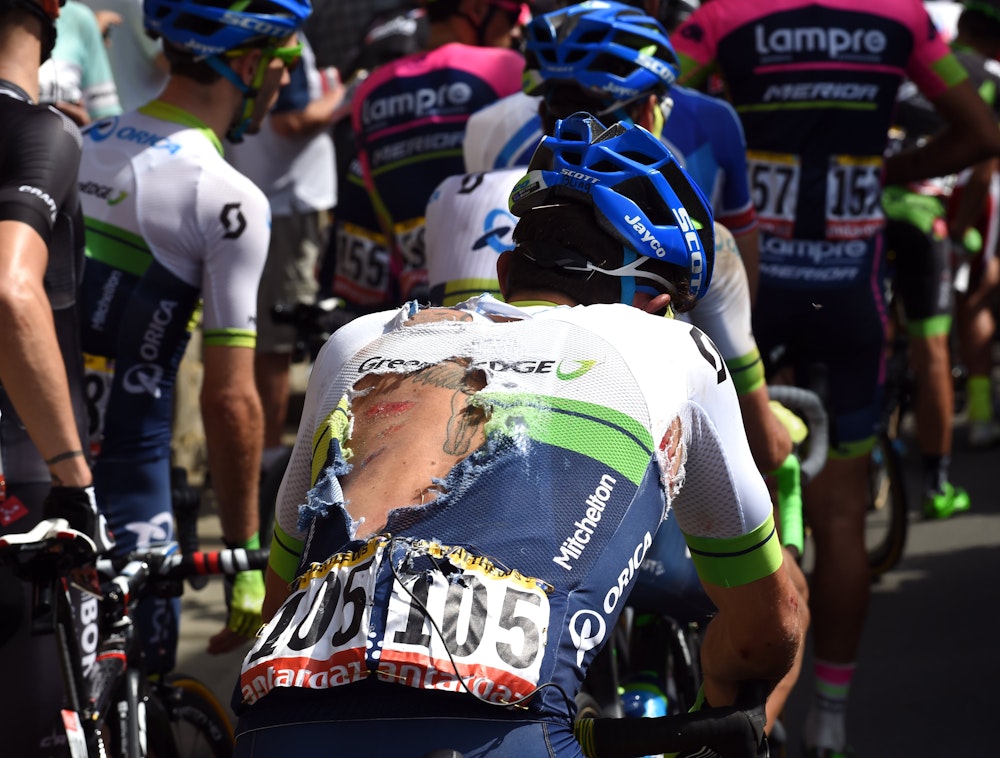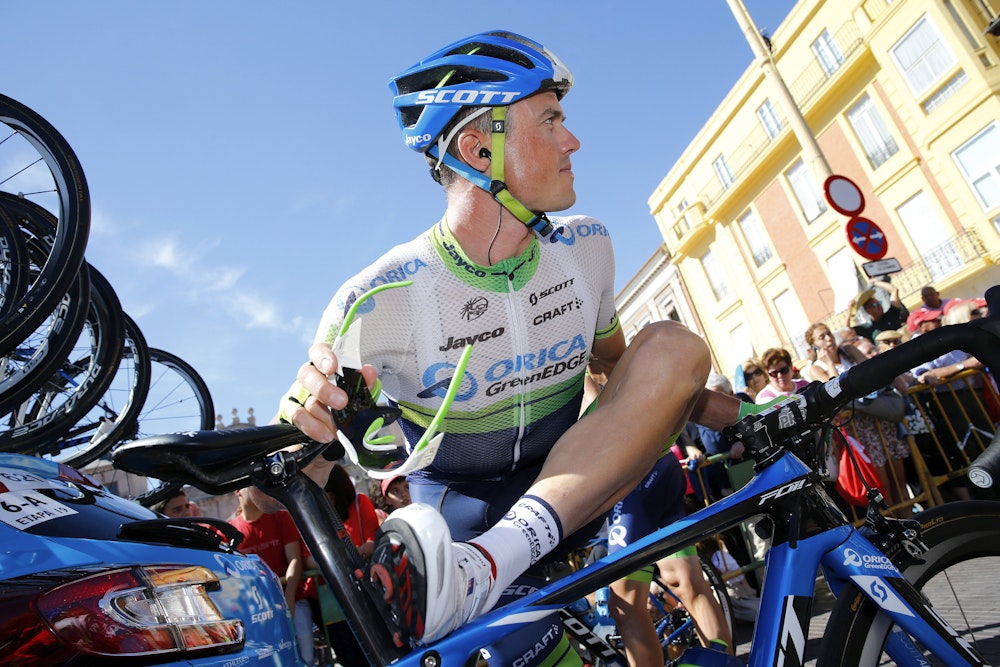No victory in the World Tour is a one-rider effort. A pro might wear the jersey or take home the trophy but it requires a huge team working together to achieve success. A key part of Orica-GreenEDGE is the medical team, which consists of over 12 full and part time people.
We caught up with team Osteopath Andrew Gerrans to get a more in-depth look at what it takes to keep the boys on their bikes.
Hi Andrew, could you give us a bit of an overview of your role and duties within the team?
My role is primarily to manage, prevent, treat and rehab our riders' injuries, both in and out of competition. I spend about 150 days on the road during the season, especially the major stage races and one day classics. The rest of the year I’m in Girona, Spain, to look after more than half our team based there. Some of that involves treatment and rehab work, as well as helping out with some strength and conditioning in the gym.
Can you give us some insights into the medical team and their areas of expertise?
Our team consists of a mixture of full and part-time staff. Dr Peter Barnes, who is also based in Girona, heads our medical team. We also have two part-time doctors, a physio, an exercise physiologist, a chef, and about 10 masseurs. At any given race we always have one doctor, either myself or our physio, and three or four masseurs/soigneurs.
See also: What's more important? Your training or your genes?
Give us an idea of a typical day for you at the Tour de France
The Tour is a hectic three weeks. We’re typically up and getting prepared for the day before 7am and not sitting down to dinner until 10 at night. In the morning I help our soigneurs with the prep work that goes on each day, making bottles, feed bags, loading up the cars etc. The riders usually surface an hour or so later so I do the rounds with them before we leave the hotel to see how everyone is feeling. Often someone needs a quick treatment if they’ve woken up sore from the day before, or from a crappy hotel mattress!
I’m on the bus before the race start to tape up anyone who needs it, then either to the feedzone or the top of a mountain somewhere to give bottles during the race.
I check on everyone again back at the hotel and we organise treatments around massages, ice baths and dinner. We might have two hours from arriving at the hotel to when the riders go for dinner, so I have to prioritise which of our nine riders I can see for treatment in the limited time we have each day post race.
What are the most common treatments usually required for riders during the Tour de France?
The first week is pretty nervous and stressful, so a lot of guys present with upper thoracic, shoulder or neck complaints just from being so tense on the bike. Crashes are really common in the first few days as well, so there is usually some work to do there. By the third week the cumulative fatigue catches up with everyone so any muscle imbalances or weaknesses can start to take their toll on the body, typically in the lower back and pelvis.

Is there anything that makes treating professional cyclists different to treating the average Joe?
I find the body of a professional cyclist, or athlete in general, tends to be very receptive to treatment. Also, because they are so aware of their own bodies it’s easier to get accurate feedback from a cyclist than the average Joe. Palpation of tissues tends to be easier on the leaner individuals as well. At the same time they can have unrealistic expectations of recovery times given the demands they put on their bodies, so that can be a bit of a challenge to manage!
See also:Check out our interview with Esteban Chaves
Do you have any advice for amateur cyclists for preventing or managing some of the common problems you see in cyclists?
Don’t just ride a bike! The human body wasn't designed bio-mechanically to be in a fixed position on a bike for hours on end, so doing some regular cross-training such as swimming, hiking, pilates, or gym work can help counter the postural or mechanical strains that cycling can cause.
Which rider spent the most amount of time on the treatment table this year?
Simon Clarke
What is the most bizarre complaint you've had whilst working with a pro cycling team?
I get a few complaints about my generosity of ice in the ice baths!
What is the most severe injury you've seen a rider continue to ride through something like the tour de France with?
I'm always amazed seeing a rider finish the stage after fracturing a clavicle, arm, or ribs. As longs as it’s medically safe, most riders can continue the Tour with a cracked rib or two though. Anything more serious and they usually won’t make it to the start line the next day.
See also: Tips on how to descend like a crazy horse

What part of the job do you enjoy the most?
Working with driven individuals whose hard work and sacrifices got them to where they are today.
What is the hardest part about being an osteopath in a pro-cycling team?
Living out of a suitcase, hotel food, using a portable treatment table, and going to the biggest bike races in the world but rarely watching the race!
What is it like treating your brother? Does this make him a better or worse patient?
Ha-ha good question! Not surprisingly, Simon was the first cyclist I treated. He has seen me develop as an osteopath and I’ve seen him develop as a rider. He has high expectations of me, as he does of himself. We have a good relationship on and off the treatment table.
How much of your work is practical and how much is ‘paperwork’?
Aside from usual treatment notes and keeping the medical team up to date with the rider’s injury/health status, the majority of my work is hands-on. I make the most of the travel to and from races to catch up on research and reading publications, and I can utilise the wealth of knowledge our team doctors have when I’m at races as well.
How has your role and practice changed over the years since working with OGE?
My treatment style is actually not that different to how I would approach a non-cyclist but I’ve naturally developed my skills more towards/ around cycling bio-mechanics. I've also started some further study in nutrition and strength and conditioning, as I still see these as potential areas for performance improvements in professional cyclists today.
That's been very insightful Andrew, thanks for your time.
Thanks Graham Watson for the images
Keep up with our reviews, news, interviews and more - like us on Facie or subscribe to our email





